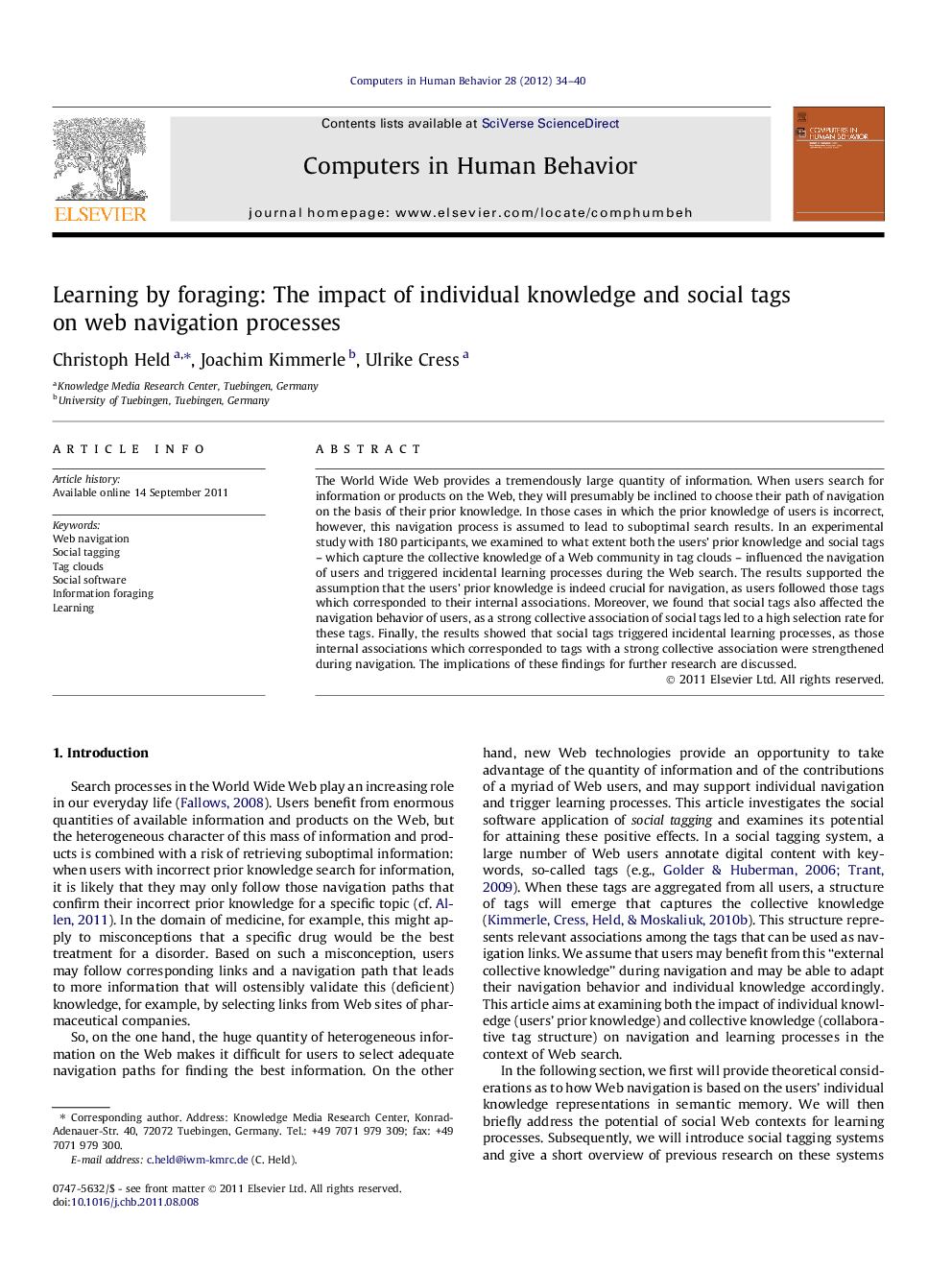| Article ID | Journal | Published Year | Pages | File Type |
|---|---|---|---|---|
| 351544 | Computers in Human Behavior | 2012 | 7 Pages |
The World Wide Web provides a tremendously large quantity of information. When users search for information or products on the Web, they will presumably be inclined to choose their path of navigation on the basis of their prior knowledge. In those cases in which the prior knowledge of users is incorrect, however, this navigation process is assumed to lead to suboptimal search results. In an experimental study with 180 participants, we examined to what extent both the users’ prior knowledge and social tags – which capture the collective knowledge of a Web community in tag clouds – influenced the navigation of users and triggered incidental learning processes during the Web search. The results supported the assumption that the users’ prior knowledge is indeed crucial for navigation, as users followed those tags which corresponded to their internal associations. Moreover, we found that social tags also affected the navigation behavior of users, as a strong collective association of social tags led to a high selection rate for these tags. Finally, the results showed that social tags triggered incidental learning processes, as those internal associations which corresponded to tags with a strong collective association were strengthened during navigation. The implications of these findings for further research are discussed.
► We present an experimental study with 180 participants. ► We found that the users’ prior knowledge is crucial for navigation. ► Social tags also affected the navigation behavior of users. ► Social tags triggered incidental learning processes.
